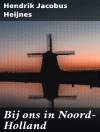The ‘Prose Edda, ‘ composed by Snorri Sturluson in the early 13th century, serves as a fundamental text for understanding Norse mythology and poetics. This comprehensive work is not merely a collection of myths but a sophisticated framework explaining the nature of poetry and the cultural heritage of the Norse people. Sturluson’s use of a colloquial yet erudite Icelandic vernacular enriches the narrative, incorporating elements of folklore, linguistic theory, and traditional storytelling. The text is structured into three primary sections: the Gylfaginning, the Skáldskaparmál, and the Háttatal, each merging narrative and didactic elements to elucidate the significance of the mythic cosmos from creation to Ragnarok. Snorri Sturluson, an influential historian, poet, and politician, was deeply embedded in the cultural and intellectual milieu of medieval Iceland. His experiences as a chieftain and his scholarly pursuits likely fostered a keen interest in preserving Norse traditions during a time of rapid Christianization and cultural transformation. Sturluson’s motivations for compiling the ‘Prose Edda’ may also reflect a desire to safeguard the legacy of Icelandic identity and literature amidst external pressures. This seminal work is indispensable for anyone intrigued by Norse mythology, literature, or medieval history. It not only offers profound insights into Viking culture but also serves as a crucial source for subsequent literary texts. Scholars, students, and casual readers alike will find the ‘Prose Edda’ an essential gateway into the rich tapestry of Norse heritage and its enduring impact on contemporary narratives.
A propos de l’auteur
Snorri Sturluson (1179–1241) stands among the most distinguished figures in Icelandic literature and history. Born into a leading family in Hvammur, he combined roles as a poet, historian, and politician, climbing to the height of the Icelandic medieval power structure. Notably, Snorri authored the ‘Prose Edda’ or ‘Younger Edda, ‘ which remains an invaluable treasury of Norse mythology and skaldic poetry. The Prose Edda is considered one of the most remarkable works for understanding ancient Norse sagas and it provides an extensive guide to the myths of the Viking gods, their stories, and the poetic language used to describe them. His other significant work, ‘Heimskringla, ‘ a collection of sagas narrating the history of Norwegian kings, also demonstrates his profound gift for compiling and recounting history through a narrative lens. Snorri’s literary achievements reflect a remarkable synthesis of learned European traditions and the intricate oral-culture storytelling of Scandinavia, harnessing the Old Norse language and the Icelandic saga form. His works continue to be the subject of scholarly study, affirming his influence on Scandinavian literature and our understanding of Viking-age mythology. Snorri’s life, marked by ambition and tragic entanglement in the politics of his day, culminated in his assassination in 1241. Despite the political strife that clouded his later years, his influence endures through his literary contributions, which provide priceless insight into the medieval Nordic world.












